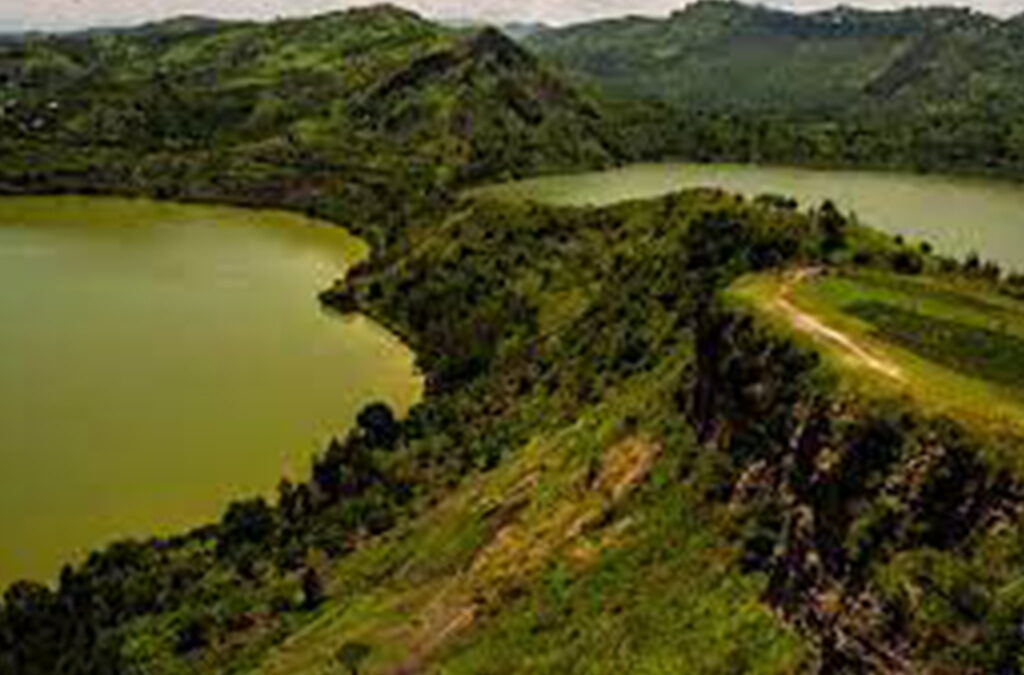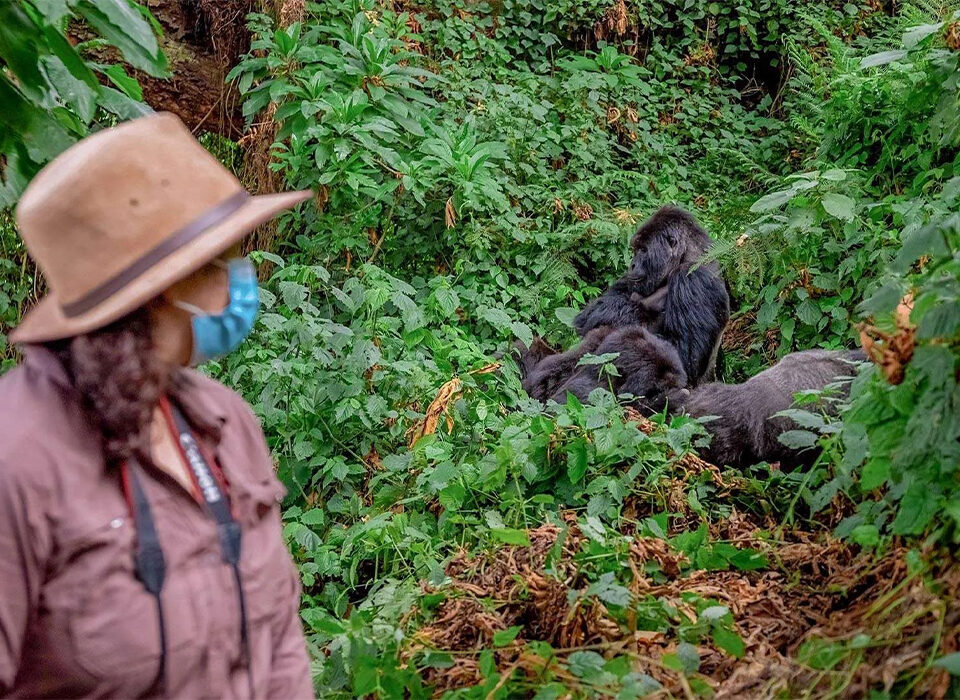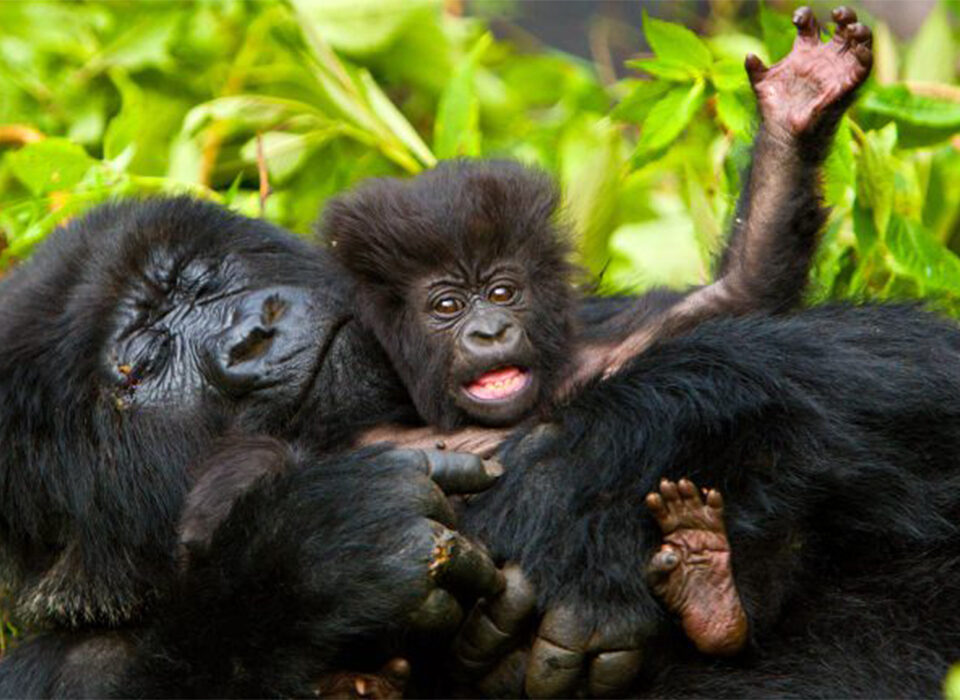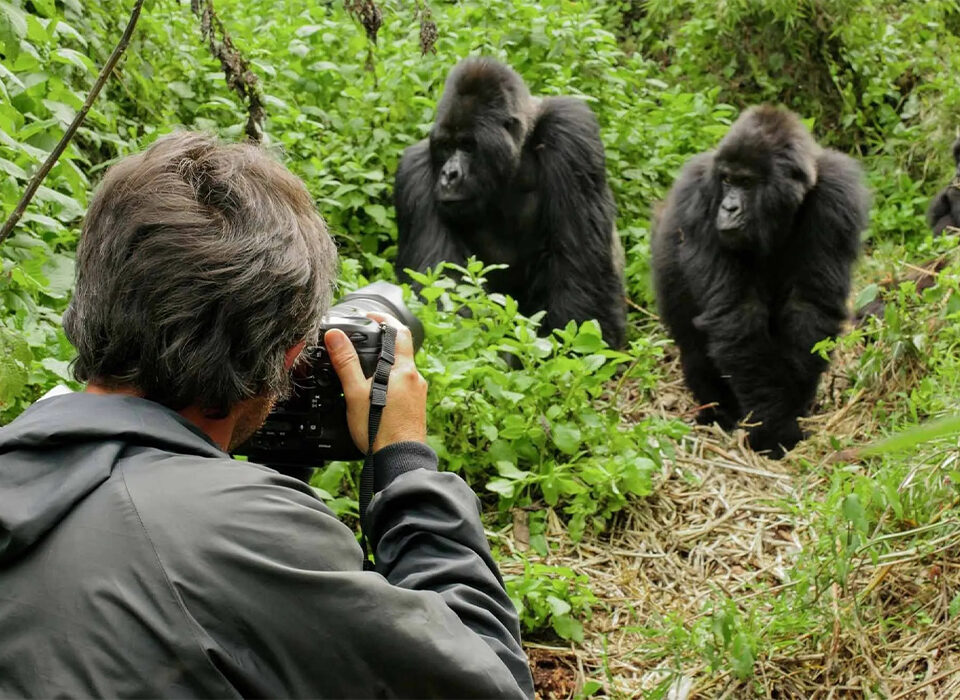
Uganda Small Group Tours from Kigali
July 2, 2025
Best Time to Visit Zanzibar
July 3, 2025Twin Lakes of Burera and Ruhondo

Explore the Enchanting Twin Lakes of Burera and Ruhondo
In the heart of Rwanda’s highlands, nestled at the base of Mount Muhabura, lie two stunning natural gems Lake Burera and Lake Ruhondo. These breathtaking twin lakes stretch across the northern part of the country, near the Uganda-Rwanda border, and just a short distance from Musanze town. Their location near the iconic Volcanoes National Park, famously known as the “home of mountain gorillas,” makes them a must-visit for travelers looking to unwind after a morning of trekking.
With deep blue waters surrounded by steep hills and the majestic Virunga volcano chain, the twin lakes create a dramatic and peaceful landscape, perfect for nature lovers and photographers alike.
The Geological Story Behind the Lakes
Long ago, Rwanda’s largest river the Nyabarongo flowed northward toward the region of Ndorwa, which was historically Rwandan territory but now lies within Uganda. However, powerful volcanic eruptions reshaped this landscape forever.
The eruption of Mount Muhabura, now a dormant volcano, caused lava flows to block the natural river channel. As a result, the Nyabarongo River changed its course, now flowing southeast to merge with the Akanyaru River and eventually forming the Akagera River. This geological transformation created the twin lakes, now known as Burera and Ruhondo. Scientists refer to them as lava-dammed lakes due to their volcanic origin.
Today, these lakes cover a combined surface area of approximately 2,800 hectares, with just a narrow 1-kilometer strip of land separating them. Their volcanic history not only shaped the landscape but also enriched the surrounding environment, making it fertile and ecologically diverse.
Scenic Beauty and Tranquil Surroundings
Visitors often fall in love with the lakes serene atmosphere. The calm, deep-blue water reflects the surrounding green hills and distant volcanoes, offering stunning views at any time of day. You will notice the heavily terraced hills around the lakes, cultivated with crops like potatoes, beans, and maize, adding to the area’s picturesque charm.
The shores of Burera and Ruhondo offer incredible opportunities for sightseeing, especially during afternoon or evening visits. After an adventurous morning tracking gorillas or golden monkeys in Volcanoes National Park, the lakes provide a peaceful place to relax and reconnect with nature.
Travelers can also combine their lake visit with a cultural experience at Ibya iwacu Cultural Village or a tour of the nearby Musanze Caves. These combinations make for a full day of exploration blending wildlife, culture, and natural beauty.
Ideal for Bird Watching and Nature Exploration
In addition to scenic beauty, Burera and Ruhondo are excellent destinations for bird watching. The lakes, along with the adjacent Rugezi Swamp, form one of Rwanda’s seven Important Birding Areas (IBAs). This lush wetland habitat attracts a variety of bird species, including migratory and endemic ones.
Bird enthusiasts can expect to spot species such as the Grauer Swamp Warbler, Papyrus Gonolek, and the White-winged Swamp Warbler, among many others. Whether you’re a seasoned birder or a curious traveler with a love for nature, this region offers exceptional avian diversity in a tranquil setting.
Activities on the Water: Boat and Canoe Trips
To fully appreciate the twin lakes, many visitors choose to take a boat or canoe ride across the water. Local guides often lead these excursions, sharing insights about the lakes formation, surrounding communities, and wildlife. These rides offer up-close views of the hills, waterfalls, and a number of islands scattered throughout the lakes.
You can choose between traditional dugout canoes hand-carved from single logs or motorized boats, depending on your preference. Either way, gliding across the still water with volcano peaks looming in the distance creates an unforgettable experience.
For those interested in exploring the islands, boat rides provide access to hidden corners of the lakes rarely seen from the shore. Some islands host small settlements, while others remain untouched, offering ideal stops for photography and quiet reflection.
Local Life and Fishing Culture
The twin lakes also offer a glimpse into the everyday lives of people living in the highlands. Local fishermen continue to use age-old methods, crafting their own wooden canoes from single tree trunks and relying on handmade fishing nets or simple hooks. Watching them at work, especially during early morning or late afternoon hours, adds a meaningful cultural layer to your visit.
Fishing not only sustains families in the area but also forms part of the lakes’ identity. As you interact with locals or observe their traditional techniques, you’ll gain a deeper appreciation for the balance between nature and community in this region.
Comfortable Lakeside Stays
Thanks to growing tourism in the region, visitors now have a wide selection of accommodation options around the lakes. From eco-lodges to boutique guesthouses, travelers can enjoy overnight stays with sweeping views, fresh air, and the soothing sound of water lapping against the shore.
Many lodges feature restaurants serving locally sourced meals, cozy rooms with modern comforts, and warm hospitality from staff who take pride in sharing Rwanda’s natural wonders. Whether you’re traveling solo, as a couple, or with a group, you will find places that cater to your needs while preserving the natural ambiance.
Getting There
Reaching the twin lakes of Burera and Ruhondo is easy. From Kigali, Rwanda’s capital, it takes about 2.5 to 3 hours by road to reach Musanze. From Musanze town, the lakes are only a short drive away, with scenic roads winding through rural landscapes and terraced fields.
Because the lakes sit near many major attractions in the Northern Province, they fit naturally into most Rwanda itineraries especially for those heading to Volcanoes National Park for gorilla trekking.



